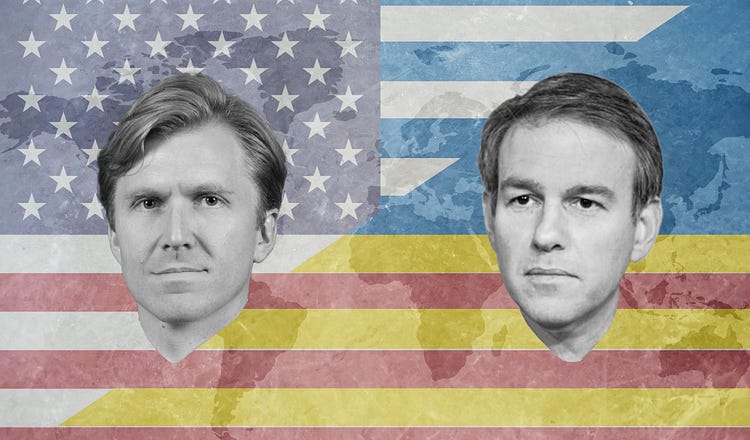Weekend Listening: Should America Continue to Aid Ukraine?

Elbridge Colby (left) and Bret Stephens. (Photo illustration by The Free Press; headshots via U.S. DOD and Getty Images)
Two years on from Russia’s invasion, Elbridge Colby and Bret Stephens debate what U.S. policy should be.
603
Two years ago today, Russia invaded Ukraine.
The costs of the war have been unbelievably high. Half a million Ukrainian and Russian soldiers have either been killed or wounded. The U.S. alone has spent $113 billion supporting Ukraine. And an aid package that includes another $60 billion is stuck in Congress.
Part of the reason for that legislative limbo i…
Continue Reading The Free Press
To support our journalism, and unlock all of our investigative stories and provocative commentary about the world as it actually is, subscribe below.
$8.33/month
Billed as $100 yearly
$10/month
Billed as $10 monthly
Already have an account?
Sign In

